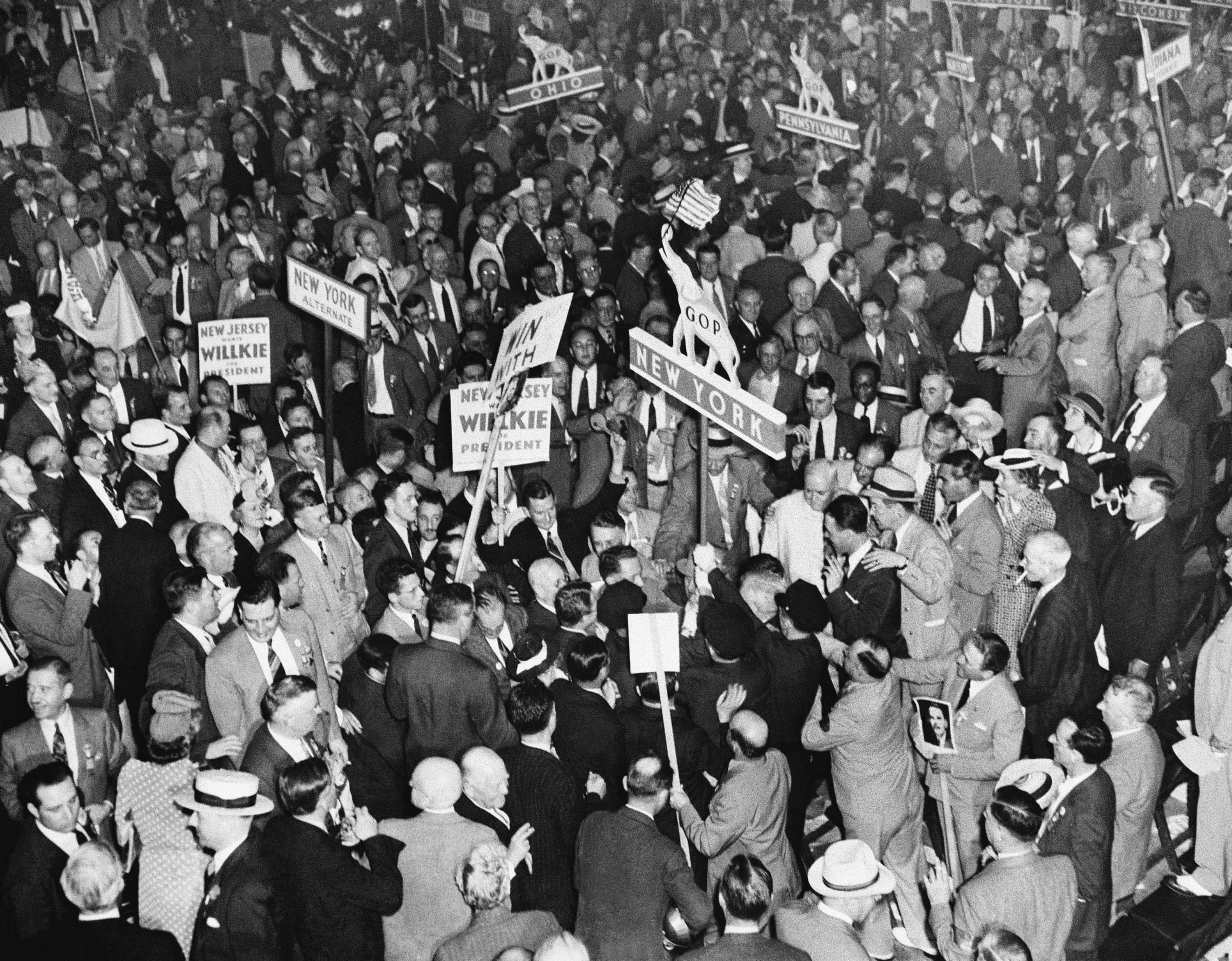 With the inconclusive results from Super Tuesday, and the possibility that Marco Rubio captures a significant number of delegates on the Second Super Tuesday, March 15, there is increasing talk of a convention where none of the three major candidates arrives in Cleveland with enough delegates to secure the nomination.
With the inconclusive results from Super Tuesday, and the possibility that Marco Rubio captures a significant number of delegates on the Second Super Tuesday, March 15, there is increasing talk of a convention where none of the three major candidates arrives in Cleveland with enough delegates to secure the nomination.
In the past, this was known as a “brokered convention,” but with the demise of anything representing a serious party power structure, there are no brokers, and the term “open convention” has taken hold.
Such a scenario has become Marco Rubio’s best shot at the nomination, assuming that he does well in the upcoming states, and is still viable as a candidate.
Reports that Rubio is now pursuing this as his primary strategy have prompted faux outrage from some quarters, decrying the “arrogance” of such a strategy that would “steal” the nomination from Trump.
Rubio has successfully head-faked us twice before, and that should be taken into account when appraising the value of these reports. But for the sake of discussion, let’s assume they’re true.
In my opinion, this is a common-sense strategy for someone who wants to win, and who believes that he can force an open convention. Prior to the modern era, open conventions were the norm, because primaries and caucuses with reported results were so few and far-between. Neither NY Gov. Thomas Dewey in 1948, nor Gen. Dwight Eisenhower in 1952 was nominated on the first ballot. Wendell Willkie was nominated on the 6th ballot in 1940. I’m sure there’s a history of the 10-ballot 1920 nominating convention either written, or waiting to be written.
The last time this happened in a Republican convention was 1976, when Reagan narrowly failed to unhorse incumbent President Gerald Ford.
Less remembered was the 1980 Democratic race, where President Carter had enough delegates to secure renomination, but Senator Ted Kennedy hoped that an increasing loss of confidence in Carter would be enough to pass a floor motion to unbind the delegates. The procedural vote failed, but that outcome was by no means a foregone conclusion, and I remember watching it live.
I don’t see why this strategy is any more arrogant or cynical than Ted Cruz’s overt appeasement of the Trump campaign, trying to transform the race from the presumed “lanes” into a pre-Trump semifinal. Cruz and his supporters have obviously fed Trump support, hoping to use him as a blocking back. Over time, this has transformed into outright appeasement, an “eat me last” strategy that seeks to make Cruz the only acceptable alternative to a Trumpmonster he assisted. In the process, they have helped Trump to severely damage many of the institutions they had hoped to inherit.
The Trump people, and the Cruz people who want to paint Rubio as exceptionally opportunistic, have taken to talking about the “will of the people,” always a doleful sign, but exceptionally so in a Republican primary.
I don’t believe in “the will of the people.” I believe in decisions, candidates, and nominees. I believe in ballots, and delegates, and delegates who cast ballots in order to make decisions and choose among candidates for nominees. You mark a ballot, and if you do it wrong, it’s not my job to figure out which of the stray marks, notes, arrows, corrections, and erasures indicate what it was you were trying to do. In mathematics, my views may vacillate between constructivism and platonism, but in politics, I am a strict, unyielding formalist.
Likewise, the rule is that you only get the nomination if you get 50% + 1 of the delegates. If you don’t get 50% + 1 of the delegates, then by definition it was not “the will of the people” that you be nominated.
If there’s an open convention, arms will be twisted, deals will be made, principles will be pitched and abandoned, and someone will emerge with a majority on some ballot. If the candidate who walks in with the most, but not enough, doesn’t have a plan to win, then shame on him, but it’s his problem, not mine.
Welcome to the real world.



